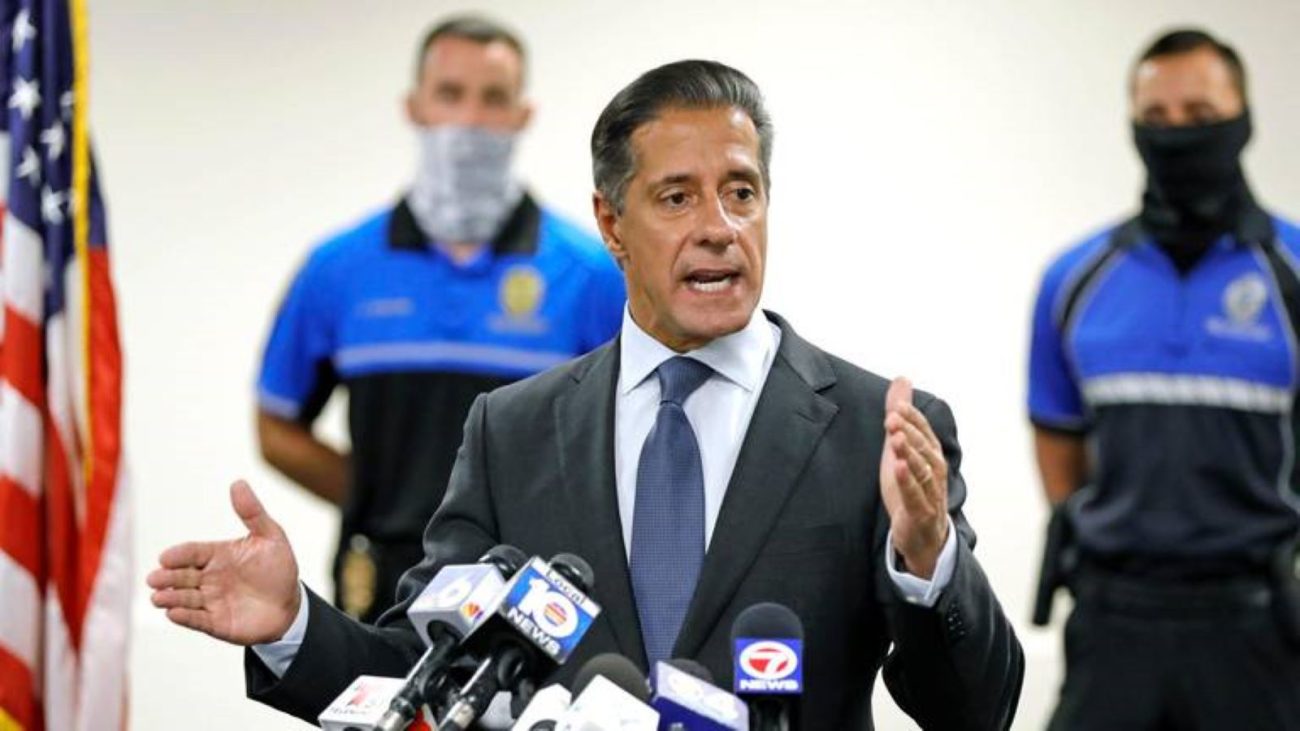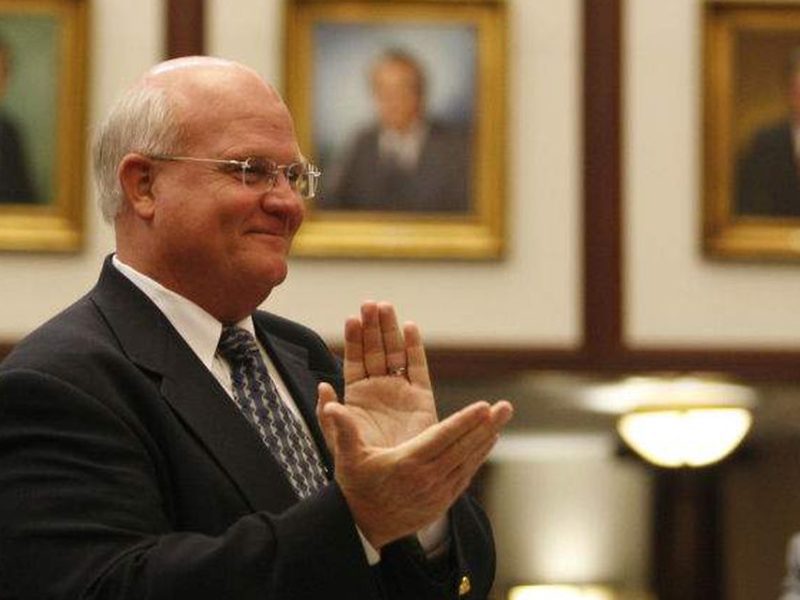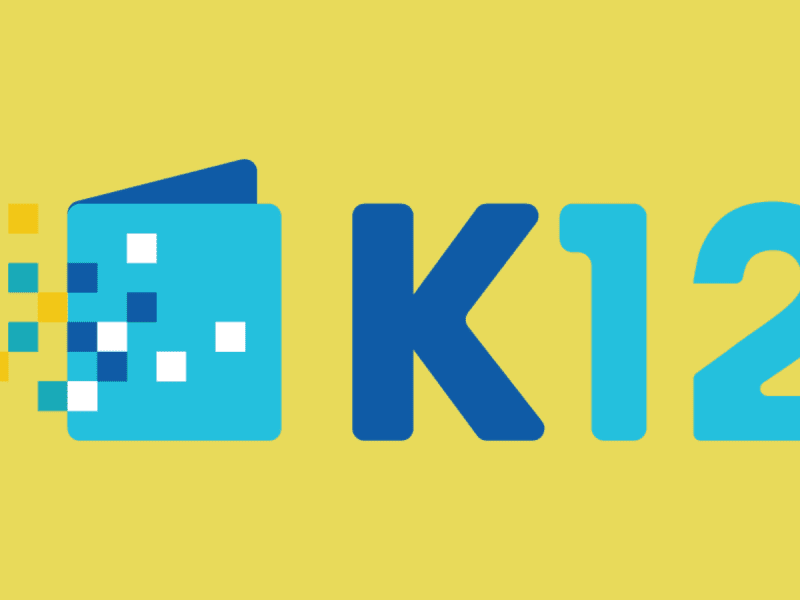‘We are living in a nightmare every day.’ Parents, teachers cry out for help on schools.
Miami Herald | by Colleen Wright | September 9, 2020
The Miami-Dade County School Board had a lot to discuss at its first board meeting since the disastrous start of school last week.
But five hours into Wednesday’s meeting, board members hardly spoke.
The meeting opened to hear one of the proposals from vice chair Steve Gallon that seeks to get to the bottom of what went wrong last week, from how the school district procured such a problematic online learning platform from the company K12 to how cyberattacks disrupted virtual classes.
But first, board members had to listen to all the public comments submitted for just that proposal.
After at least 209 voicemails and written comments were read aloud, the board had to adjourn at 6 p.m. to hold the second hearing on its $5 billion budget in compliance with Florida law. The board unanimously approved the 2020-21 budget, which goes into effect on Oct 1.
Gallon told the Herald that 348 speakers signed up to comment on his proposal. He informed the board at 6 p.m. that once the budget hearing is finished, the district can get back to public comments. Board member Marta Perez interrupted to say that she received messages from the public waiting for board members’ discussion and action.
“Discussion potentially could occur but no action can occur until all speakers have been exhausted,” Gallon said.
By that time, it was 9:30 p.m. The board voted unanimously to discuss all 18 proposals brought by board members, as well as an item approving federal CARES Act funding, and move the rest of the meeting to Monday.
Board members erupted in a fight over whether to hear the rest of the 100-plus comments submitted for Gallon’s item. Board chair Perla Tabares Hantman lashed out for control to mute board members.
The district’s agenda coordinator said the remaining 184 comments were transcribed into 2.5 hours left to be heard. That’s not including 94 people who submitted comments after yesterday’s deadline for a total of 3.5 hours.
An overwhelming amount of comments expressed disappointment, frustration and anger toward My School Online, the controversial online learning platform powered by for-profit educational company, K12.
With the exception of one elective teacher who praised the platform, calling it “simple to use” and blaming issues on connectivity, K12 appeared to be widely unpopular among teachers and parents. One commenter said it was the school district’s “Hurricane Katrina.”
They detailed the technical issues with the platform, from not being user-friendly to constant audio issues and not being able to share screens or see all students at once.
“I have never been unhappy or dissatisfied with any curriculum or training we’ve ever had in the past. I have never felt the need to speak up…until now,” said Tracey Bergolla, a first-grade teacher at Jane S. Roberts K-8 Center in southwest Miami-Dade. “K12 is not user friendly nor teacher or student friendly. It is confusing.”
Beyond that, many teachers and parents said they found the curriculum to be inappropriate for younger students and students with special needs. A single mother of two children at William Lehman Elementary in Kendall said her son with special needs felt dejected when he didn’t take to online learning.
“I reassured him that he was not dumb and that his work was just a bit difficult,” she said. “The K12 program is not meant for special needs students.”
Maritza Fajardo, a 15-year special needs teacher at Devon Aire K-8 Center in southwest Miami-Dade, said she was considering withdrawing her own third-grader and kindergartner from the school district.
“If a teacher feels this way, I can only imagine the parents,” she said.
Sanjuanita Campuzano, a Florida City Elementary teacher, said her students struggle because they do not have the parental support at home.
“I am glad my son is at a charter school because his charter school has done things easy for the students and the parents,” while her daughter attends a district-run public school, Campuzano said. “K12 is not working for our students. K12 is a program where the student should be doing the work on their own. My students are not at the level K12 expects them to be at.”
A mother of a third-grader said she had to take a week off of work to help her special needs son. She said it was “unjust to put stress levels that come with this new program on elementary children.”
Yvette Torres Casas made the case to open schools for parents who need it. She says her son is a sixth-grader at Glades Middle in southwest Miami-Dade attending the Cambridge Program. He is considered high functioning on the autism spectrum.
“My son is no longer sleeping at night” and is suffering from anxiety and depression, she said. “(The) ripple effect for years to come but it is not too late. Please allow those parents who choose to go.”
Community members, including parents and teachers, also weighed in on reopening schools. The comments were split, with passionate remarks both adamantly in favor of and against reopening schools.
A high school teacher asked for the school district to consider opening schools for elementary students who need social interaction. She said her son is upset about not being able to attend kindergarten.
“He would cry every day because he is unable to go to real school,” she said, making the case that the school has space to accommodate students. “Consider a case-by-case basis.”
A first-grade teacher at Banyan Elementary off Southwest 85th Avenue and union steward said she was in favor of reopening schools.
“The K12 platform is not working for my students,” said Maria Roca. “I am having constant interruption.”
A parent of a student at Southside Elementary in Brickell begged for schools to open.
“We are living in a nightmare every day and our kids are not getting an education,” she said. “Parents need to go to work.”
Those against reopening were terrified of community spread and older staff falling ill. Another teacher at Banyan Elementary said she is considering retiring early.
“In my opinion this will be a great loss to the school system,” said Stella Summers. “I’ve been an extremely dedicated teacher for almost 30 years. I feel like having to retire because I am worried about my health and being exposed to the virus is a very sad state of a teacher with dedicated service (with) so many years has to be in.”
A mother of three children in public schools gave this comment: “I can’t afford to stand in front of a coffin and see my children lying in theirs.”
A teacher at G. Holmes Braddock Senior High in southwest Miami-Dade threatened legal action if she succumbs to the virus as a result of opening schools.
“My mother died of COVID. My entire family has had COVID. I have weakened lung capacity having had COVID,” said Lissette Monzon. “If something happens to me because you guys need babysitters … (there will be) legal action on the behalf of my family.”
Alexandra Martin, a teacher at Royal Palm Elementary off Bird Road and Southwest 112th Court and executive board member of the United Teachers of Dade, tried to look on the positive side. She said the district needs to abide by the eight criteria set by medical experts that signal when it’s safe to open schools.
“Until eight metrics (are) met, My School Online is the safest plan,” Martin said. “Let’s give each other grace and realize we are all in a pandemic.”
Among the eight metrics the School Board adopted in July: A sustained COVID-19 positivity rate of less than 10%, trending toward 5%, for 14 days. On Wednesday, Miami-Dade County’s 14-day positivity rate average was 6.46 percent, according to state health officials. In Wednesday’s Florida Department of Health report, the state reported Miami-Dade County’s positivity rate was 6.25 percent.
In addition to Gallon, three other board members walked in four other proposals seeking to get to the bottom of the fourth-largest school district’s disastrous debut of its first week of virtual school.
Board members want to know how its new online platform, My School Online by K12, was procured, if the school district could terminate the platform, how the district’s cybersecurity suffered more than two dozen cyberattacks, and have a clearer reopening plan going forward.
Featured Photo: Schools Superintendent Alberto Carvalho, seen at a press conference on Sept. 3 announcing the arrest of a 16-year-old South Miami High student accused of eight cyberattacks against Miami-Dade Public Schools, listened Wednesday to comments from parents and teachers at the virtual School Board hearing. The commenters, who left more than 300 voicemail messages, expressed disappointment, frustration and anger about My School Online, an online learning platform. AL DIAZ ADIAZ@MIAMIHERALD.COM






